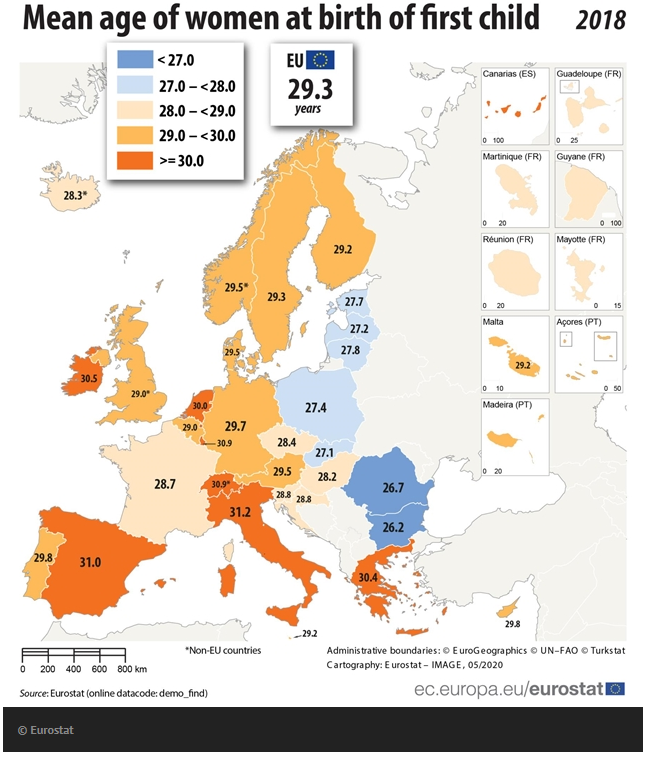Hungarian women give birth earlier than the EU average

Interestingly, Italians and the Spanish wait for the longest to have children in the European Union.
According to hvg, in 2013, an average woman gave birth to her first child at the age of 28.8, and this number grew to 29.3 by 2018. Based on the newest report by Eurostat, the mean age rising is typical in every member state, but to a different extent.

Data shows that the biggest change in this respect happened in Estonia where the mean age increased by 1.2 years between 2013 and 2018 (26.5 to 27.7), and they are followed by Latvia and Lithuania where the growth was 1.1 years.
- Government officials at demographic summit: Having children a matter of values
- Demographic turnaround requires mentality change, says house speaker
- Solution to Europe demographic problem in families, not migration, says state secretary
- Orbán: The demographic problem should be solved through family policy
The change is the least in Slovakia and Sweden (0.2 years), as well as the Czech Republic and Slovenia (0.3 years). According to Eurostat’s report, Italian and Spanish women give birth to their first child the latest in the European Union – 31.2 years is the average in the former and 31 years in the latter. Women living in Luxemburg, Ireland, or Greece do so around the age of 30, while
the average woman has their first child under 27 only in Romania (26.7) and Bulgaria (26.2).
In Hungary, there was moderate growth in the mean age from 27.7 (2013) to 28.2 (2018), but the country is still under the EU average, which is 29.3.
This is probably not surprising since the Hungarian government always emphasises how many measures they implemented to help families have children. For example, those having children have to pay lower taxes and can take up loans to buy a new house or a new car charged with very low interest rates. Furthermore, the state pays back the student loan of women if they have 3 or more children.
As Katalin Novák, the state secretary for family and youth affairs, said at the 3rd Budapest Demographic Summit in September 2019, supporting and strengthening families is not just about finances.
Starting a family and having children is a matter of values and culture, she then added.
Csaba Dömötör, a cabinet office state secretary, said on the summit that family policy would define the future. “Family policy must not be choked by political correctness. It must be discussed openly without taboos,” he added. “We must speak honestly about the saving role of families and the threats to that. We declare that the family must not be allowed to become a field of ideological experimentation,” Mr Dömötör declared.
Source: hvg.hu






Promiscuity might be an answer.